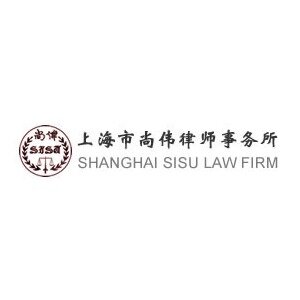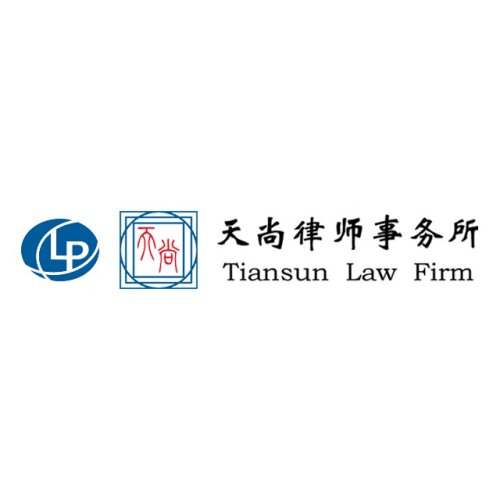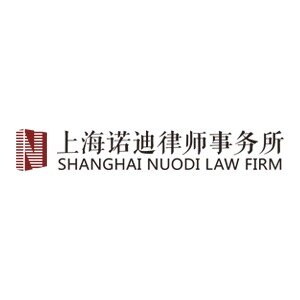Best Pension Lawyers in Shanghai
Share your needs with us, get contacted by law firms.
Free. Takes 2 min.
List of the best lawyers in Shanghai, China
About Pension Law in Shanghai, China
Pension law in Shanghai, China, is a critical aspect of the social security system, designed to provide financial support to the elderly after retirement. Pension schemes in China are typically divided into basic pension, supplementary pension, and private pension plans. The basic pension is a mandatory, public pension system, funded through contributions from both employers and employees. Shanghai, being a major financial and economic hub, has a well-developed social security system that includes these pension provisions.
Why You May Need a Lawyer
Individuals may require legal help concerning pensions for several reasons, such as disputes concerning pension entitlement, understanding complex pension regulations, handling the pension claims of deceased employees, managing pension funds, or dealing with pension-related fraud. Additionally, expatriates working in Shanghai might require specialized legal advice to navigate the Chinese pension system and understand how it interplays with pension schemes in their home countries.
Local Laws Overview
Key aspects of local pension laws in Shanghai include:
- Eligibility criteria for enrolling in the pension scheme, which usually require a minimum number of years of contributions.
- The calculation of pension benefits, taking into account factors such as years of contributions, average wages, and the specific formulae dictated by law.
- Vesting periods for pension rights, which dictate when an employee is entitled to pension benefits after leaving employment.
- Regulations on the management and investment of pension funds by both state-managed and private pension fund administrators.
- Rules for pension fund portability, particularly relevant for migrant workers who have made contributions in different regions throughout their careers.
- Provisions for early retirement and conditions under which penalties or reduced benefits may apply.
Frequently Asked Questions
1. What is the retirement age for pension eligibility in Shanghai?
As of the knowledge cutoff in 2023, the statutory retirement age in mainland China is 60 years for men, 55 years for women in managerial positions, and 50 years for other female workers, though there are discussions to increase the retirement age gradually.
2. How are pension benefits calculated in Shanghai?
Pension benefits in Shanghai are typically calculated based on an individual's average wage, their years of contributions, and a social pooling account at their location of employment.
3. Can foreigners participate in the Shanghai pension scheme?
Yes, foreigners working in Shanghai are eligible to contribute to and receive benefits from the social security system, including the pension scheme. However, detailed advice from a lawyer well-versed in international law is advisable.
4. What happens to my pension if I move to another city or province in China?
China has portability rules for pensions. However, the rules can be complex, and you might need legal assistance to ensure seamless transfer and minimal loss of benefits upon moving to another jurisdiction.
5. Can I withdraw my pension fund if I leave China?
Foreign employees who permanently leave China may apply to withdraw their pension fund contribution in a lump sum. Local laws mandate specific protocols for the withdrawal process.
6. Is it mandatory for both employers and employees to contribute to the pension fund?
Yes, contributions to the pension fund are mandatory for both employers and employees in Shanghai as part of the social security system.
7. How do I claim my pension benefits in Shanghai?
To claim pension benefits, individuals generally need to complete an application with the local social security bureau, provide proof of age, identity, and their contribution history.
8. Are there tax implications for my pension benefits?
Pension benefits are typically considered taxable income in China, and there may be applicable tax deductions based on specific thresholds and criteria.
9. What should I do if my employer is not contributing to the pension fund?
If your employer is not making necessary contributions, you may need to take legal action. Engaging a lawyer specialized in labor and social security law is advisable to address this issue properly.
10. Can I receive a pension if I have never worked?
Generally, the pension scheme favors those who have worked and made contributions. However, there may be social assistance programs for individuals who have not worked, a topic that a legal professional could help clarify.
Additional Resources
Those in need of assistance with pension-related issues in Shanghai can refer to the Shanghai Municipal Human Resources and Social Security Bureau or visit their official website for comprehensive resources and contact information. Individuals may also consider reaching out to legal clinics and non-profit organizations that provide free or reduced-cost legal services on issues of social security and pension law.
Next Steps
If you need legal assistance with pensions in Shanghai, China, consider taking the following steps:
- Compile all relevant documentation related to your employment history and contributions to the pension fund.
- Consult a lawyer specializing in pension law and social security. Look for legal professionals with experience in Shanghai's pension system.
- Consider contacting the Shanghai Municipal Human Resources and Social Security Bureau for guidance regarding your pension concerns.
- Stay informed about any changes to pension laws, as regulations can evolve and impact your benefits.
Lawzana helps you find the best lawyers and law firms in Shanghai through a curated and pre-screened list of qualified legal professionals. Our platform offers rankings and detailed profiles of attorneys and law firms, allowing you to compare based on practice areas, including Pension, experience, and client feedback.
Each profile includes a description of the firm's areas of practice, client reviews, team members and partners, year of establishment, spoken languages, office locations, contact information, social media presence, and any published articles or resources. Most firms on our platform speak English and are experienced in both local and international legal matters.
Get a quote from top-rated law firms in Shanghai, China — quickly, securely, and without unnecessary hassle.
Disclaimer:
The information provided on this page is for general informational purposes only and does not constitute legal advice. While we strive to ensure the accuracy and relevance of the content, legal information may change over time, and interpretations of the law can vary. You should always consult with a qualified legal professional for advice specific to your situation.
We disclaim all liability for actions taken or not taken based on the content of this page. If you believe any information is incorrect or outdated, please contact us, and we will review and update it where appropriate.

















